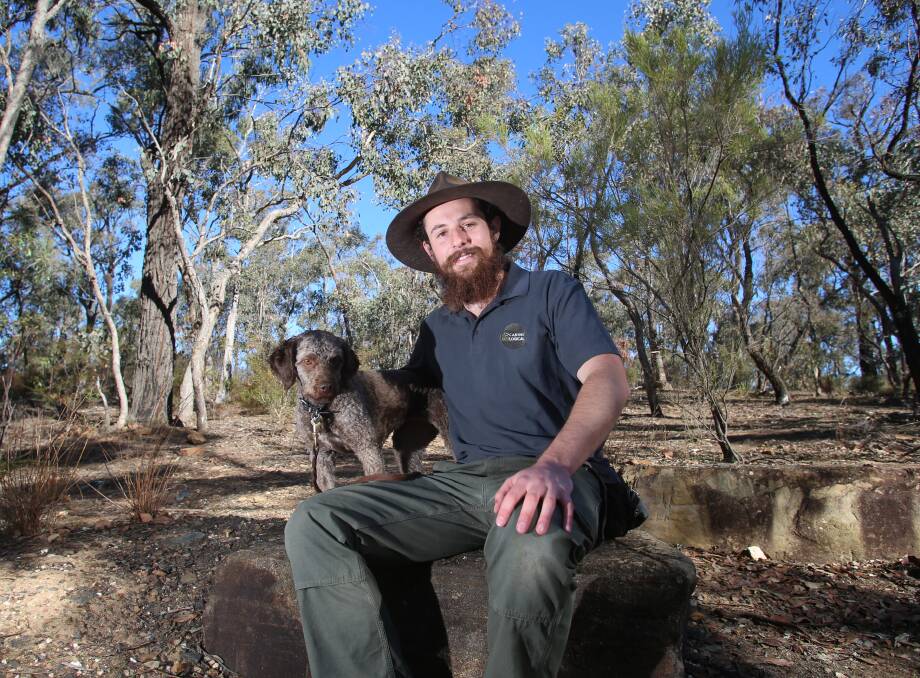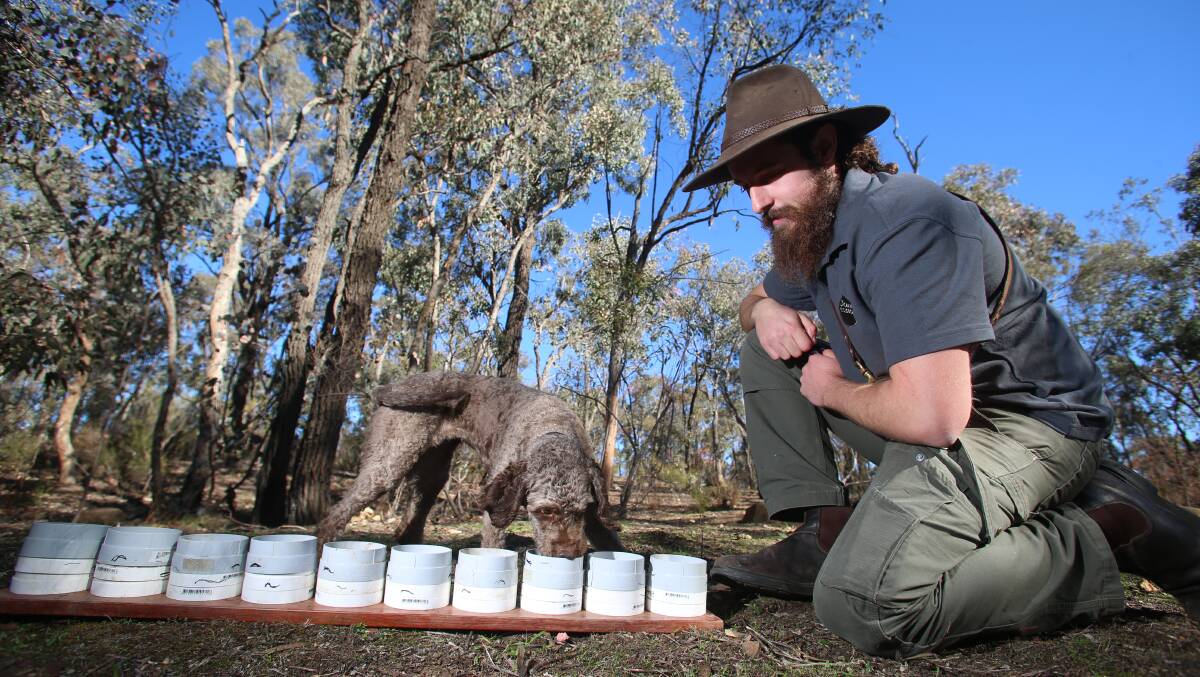
THIS man and his dog are on the front line helping save critically endangered Australian wildlife.
Subscribe now for unlimited access.
or signup to continue reading
Bendigo-based Nick Rutter and Daisy are part of an emerging industry deploying dogs to sniff out vanishing plants and animals.
Australia has the highest rates of species extinction in the world, Mr Rutter said.
More than 1,700 species and ecological communities are known to be in decline, according to the Department of Environment and Energy.
That is driving organisations and governments up and down the eastern seaboard to find new ways to help monitor and save threatened and critically endangered species.
Mobile users - Double-tap a category to explore further (story continues below this list):
The idea of using dogs in that work has not taken off as fast in Australia as in places like New Zealand and America. Mr Rutter is not sure why that is.
"There's certainly some groups in Australia who do this really well, but possibly we are more resistant, here, to novel techniques," he said.
"I think the tide is changing ... It's certainly been spread by the rate of species extinction and environmental challenges."
Dogs like Daisy can fill the gaps other methods like visual surveys, water testing and movement sensors leave in data, Mr Rutter said.
"Where dogs are really good are those low density species, and those difficult to find. 'cryptic' is the way they are often described," he said.
"If you take an endangered quoll, there might be a lot of scats in a particular area. You can identify through that DNA whether the quoll is male or female, healthy, what it's eating and in some cases whether it's pregnant.
"From there, perhaps you can coordinate surveys, camera traps or drone footage and streamline your whole approach to conserving an endangered species."

Mr Rutter and two other conservation experts - Natalie Calatayud and Naomi Hodgens - co-founded Canine Ecological and their work so far has included around Bendigo to help cut down on foxes digging up nests.
"We are one of the only companies, and one of only a handful in Australia, doing that," Mr Rutter said.
"When freshwater turtles lay their nests up to 90 per cent of turtle nests are raided by foxes - within the first 24 to 48 hours.
"It means there's this massive loss of turtles into the population. There's all these old turtles out there and no young ones."
Related:
Nests are camouflaged well, so dogs' noses are one of the best ways to find eggs quickly.
Canine Ecological last year took part in La Trobe's Accelerator Program, which rewards promising start-ups with $20,000 plus access to professional mentors, workplaces and workshops.
"We had an idea to pursue this passion and the program gave us a lot of the skills and knowledge needed to set up and run a business, that we did not have between us," Mr Rutter said.
"We had support on everything from the basics of running a business, like developing pitch ideas and contacting potential clients with value propositions, through to juggling financial aspects of advertising.
"Even after we finished the program we have still been in contact with our mentors and they have been providing support to us."
Applications have opened for 2019 and close on June 3.
For more information, click here.
Have you signed up to the Bendigo Advertiser's daily newsletter and breaking news emails? You can register below and make sure you are up to date with everything that's happening in central Victoria.


